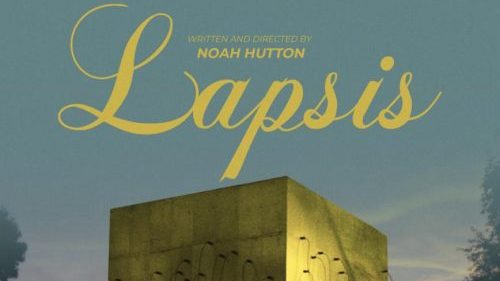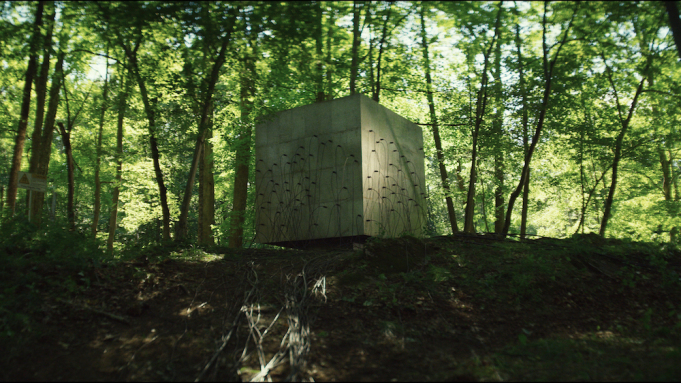
Movie Review: Lapsis
February 17, 2021This article was originally published in the Kelowna Daily Courier. The original version can be viewed here
A worker’s stolen credentials might be the key to taking on a giant conglomerate in Noah Hutton’s debut feature film.

In Lapsis, the debut feature from Noah Hutton, a quantum computing boom has revolutionized the stock market, and a new industry – cabling – is built around expanding and maintaining the quantum network.
In need of money to pay for his half-brother’s medical treatment, Ray (Dean Imperial) becomes a cabler for a weekend using stolen credentials.
As Ray chooses high-paying jobs and looks forward to life-changing amounts of money, he’s also swept into a movement among cablers to unionize. What’s more, his stolen credentials supposedly belonged to a formerly influential cabler, meaning that they might just be the key to that movement.
Cabling serves as an entertaining satire of the gig economy. The cablers compete for jobs against each other and are paid bounties that encourage them to work at the expense of their own health.
The eight cable companies – humorously and ominously all owned by one conglomerate – don’t hide that they’d prefer to automate cabling.
In terms of world-building, Lapsis excels, but elsewhere, there’s nothing special about the movie.
Imperial and co-star Madeline Wise are great as Ray and fellow cabler Anna, but their characters aren’t particularly exciting. Even the plot, emphasizing the topical message of unionization within the gig economy, is decent, but never quite hits the mark.
Lapsis takes longer than it should to set the plot in motion and moves much too quickly once it does. The movie builds to a strike that Ray and Anna plan, but once this happens, the results are never shown nor indicated.
Instead the movie just ends, with no indication whether the workers will now unionize or be stricken down by the cruel hand of a union-buster.
Another recent union movie, Sorry to Bother You, ended in a similarly vague matter. However, in Sorry, several subplots had satisfying conclusions, which resulted in the final open ending ringing less hollow.
5/10

